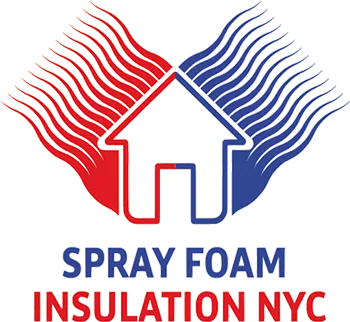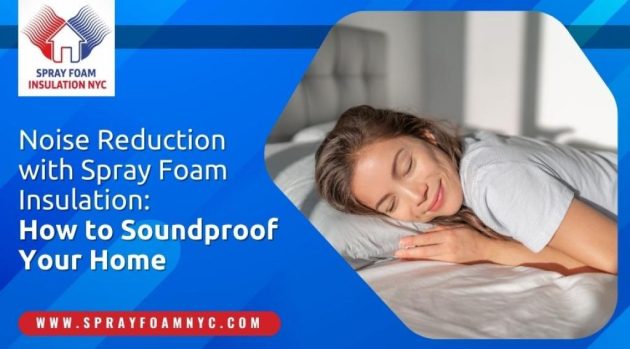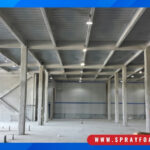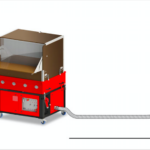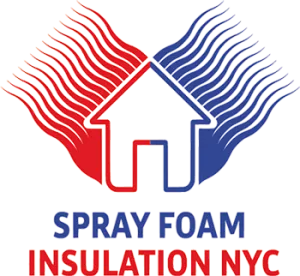As homeowners, our common desire is to transform our houses into tranquil and serene retreats, shielded from the constant noise of the outside world. Nonetheless, intrusive external sounds often find their way through walls, windows, and doors, preventing us from fully savoring a peaceful atmosphere. Luckily, there’s a perfect remedy for this predicament – the exceptional benefits of spray foam insulation services. In this article, we will delve into the realm of noise reduction and explore how spray foam insulation can seamlessly bring serenity and quietness back into your home.
Understanding Noise Pollution
Before we dive into how spray foam insulation can help reduce noise pollution, it’s essential to understand what noise pollution is and how it can affect our health and well-being. Noise pollution is unwanted or harmful outdoor and indoor sounds produced by human activities, including transportation, construction, industrial activities, and even household appliances. Exposure to prolonged noise pollution can lead to hearing damage, sleep disturbance, stress, and reduced productivity.
What is Spray Foam Insulation?
Spray foam insulation is a type of insulation material made from two composite materials, isocyanate and polyol resin. When combined, these two materials chemically react to create a foam that expands and hardens, providing a durable and seamless insulation layer. Spray foam insulation is commonly used to improve energy efficiency, regulate temperature, and control moisture in homes and buildings.
Benefits of Spray Foam Insulation for Noise Reduction
One of the significant advantages of spray foam insulation is its excellent noise-reduction properties. Spray foam insulation provides a seamless and airtight barrier that reduces the transmission of sound waves through walls, floors, and ceilings. Compared to other types of insulation materials such as fiberglass and cellulose, spray foam insulation is more effective at reducing noise pollution, making it an ideal solution for homeowners who want to create a quieter home environment.
How to Soundproof Your Home with Spray Foam Insulation
- Identify the Areas to be Soundproofed
The first step in soundproofing your home with spray foam insulation is identifying the areas that are most susceptible to noise pollution. These may include walls, floors, ceilings, doors, and windows. - Prepare the Area for Insulation
Before installing spray foam insulation, you need to prepare the area by removing any debris, dust, or dirt. You should also seal any gaps, cracks, or holes in the wall, floor, or ceiling using a sealant or caulk. - Install Spray Foam Insulation
The next step is to install the spray foam insulation. You can use a professional contractor or a DIY kit to apply the foam insulation. The foam is sprayed onto the surface and expands to fill any gaps or crevices. Make sure to apply an even layer of foam insulation, and avoid over-applying the foam, as this can cause it to sag or become too dense, reducing its effectiveness at reducing noise pollution. It’s also important to wear protective gear, such as gloves, a mask, and eye goggles when handling the foam insulation to avoid skin irritation and respiratory problems. - Seal any Gaps and Cracks
Once the foam insulation has been installed, you should inspect the area for any gaps or cracks that may have been missed. Use a sealant or caulk to fill any remaining gaps, paying attention to areas around doors, windows, and electrical outlets. - Test and Verify the Effectiveness of Your Soundproofing
After completing the installation and sealing, you should test the effectiveness of your soundproofing. Play music or make noise outside the room and observe whether the sound is still audible from within the room. If the sound is still audible, you may need to add additional layers of spray foam insulation or other soundproofing materials.
Hiring a Professional for Spray Foam Insulation Installation
While spray foam insulation installation can be done as a DIY project, it’s recommended to hire a professional contractor for larger projects or if you’re not experienced in home insulation. A professional insulation contractor will have the necessary equipment, knowledge, and experience to ensure proper installation and avoid any mistakes that could compromise the effectiveness of the soundproofing.
Maintaining Your Soundproofing with Spray Foam Insulation
To maintain the effectiveness of your soundproofing, you should inspect the area periodically for any gaps or cracks that may have developed over time. Additionally, it’s important to keep the insulation clean and free of debris to avoid any damage or degradation to the foam.
Experience Premium Spray Foam Insulation Solutions Today!
if you seek a peaceful and serene living environment, experiencing our premium spray foam insulation solutions in Queens, NY in your home is a wise decision. By effectively sealing gaps, cracks, and crevices, this innovative insulation solution acts as a barrier against external noises, allowing you to enjoy tranquility within your own space. Say goodbye to intrusive sounds and hello to a quieter home by embracing the benefits of noise-reduction spray foam insulation today.
FAQs
What is noise pollution, and how can it affect us?
Noise pollution is unwanted or harmful outdoor and indoor sounds caused by human activities like transportation, construction, and household appliances. Prolonged exposure can lead to hearing damage, sleep disturbance, stress, and reduced productivity.
What is spray foam insulation?
Spray foam insulation is a material made from two composite substances, isocyanate, and polyol resin, which create an expanding and hardening foam when combined. It is used to improve energy efficiency, regulate temperature, and control moisture in homes and buildings.
How does spray foam insulation reduce noise?
Spray foam insulation provides a seamless and airtight barrier that minimizes the transmission of sound waves through walls, floors, and ceilings. It is more effective at reducing noise pollution compared to other insulation materials like fiberglass and cellulose.
How can I soundproof my home with spray foam insulation?
To soundproof your home with spray foam insulation, first, identify the areas most susceptible to noise pollution, like walls, floors, ceilings, doors, and windows. Then, prepare the area by cleaning and sealing any gaps or cracks. Install the spray foam evenly, wear protective gear, and inspect for missed gaps. Test the effectiveness of your soundproofing and add additional layers if needed.
Should I hire a professional for spray foam insulation installation?
While small projects can be done as DIY, it’s recommended to hire a professional insulation contractor in Queens for larger projects or if you lack experience. A professional will ensure proper installation and avoid mistakes that could compromise the soundproofing’s effectiveness.
